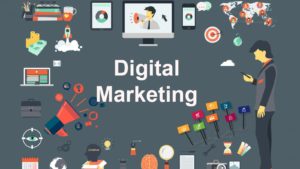
In today’s fast-paced business environment, organisations require to improve their operations to stay competitive constantly. This means finding new and innovative ways to simplify processes, reduce costs, and improve efficiency.
Fortunately, there are many technologies available that can help businesses accomplish these objectives. This article will explore the top five technologies businesses can use to sharpen their operations.
Cloud Computing
Cloud computing has been one of the most noteworthy technological innovations in recent years. Cloud computing lets businesses access computing aids, such as storage, servers, and applications, on the internet. Rather than making investments in expensive components and applications, businesses can simply pay for what they need when they need it.
One of the elementary advantages of cloud computing is its scalability. Businesses can easily scale up or down as their needs change without investing in new hardware or software.
By outsourcing computing resources to a cloud provider, businesses can avoid the expense of purchasing and maintaining their own hardware and software. In addition, cloud providers often provide solid privacy functions, including data encryption and multi-factor authentication, which can help businesses enhance their data security.
There are many cloud computing services available. Each service has its own strengths and weaknesses, so businesses should evaluate their needs carefully before selecting a provider.
Artificial Intelligence (AI)
Artificial intelligence is another revolutionary tech that can help businesses sharpen their operations. AI implies the use of computers to execute activities that generally need human intelligence, such as speech recognition, decision-making, and language translation.
One of the initial advantages of AI is its capacity to automate tasks. This can assist enterprises in saving time and improving efficiency. For example, chatbots can handle customer inquiries and support tickets, freeing up employees to focus on more complex tasks.
AI can also help businesses improve decision-making. By analysing large amounts of data, AI-powered resources can detect structures and trends that humans may not be competent to detect. With the help of AI-powered tools, businesses can make smarter decisions regarding their marketing campaigns and supply chain management. Whether it be chatbots, virtual assistants or predictive analytics – there are innumerable options available for them to choose from depending on what aligns best with their objectives. Therefore, corporations need to assess their requirements carefully before selecting a tool that is most suitable for them.
Internet of Things (IoT)
The Internet of Things refers to the network of physical elements that are linked to the internet, such as detectors, smart devices, and wearables. IoT can help businesses track inventory, monitor equipment, and sweeten customer experience. One of the preceding advantages of IoT is its capacity to accumulate data in real time.
This can help businesses identify and address issues quickly before they become significant concerns. For example, a smart sensor in a warehouse can alert employees when inventory levels are running low, preventing stockouts and lost sales.
Many IoT devices are available, such as smart sensors, smart locks, and smart thermostats. Businesses should evaluate their needs carefully and select devices that align with their goals.
Business Intelligence (BI)
Business intelligence means the use of data analysis tools to gain insights into business operations. BI can help businesses analyse data, gain insights, and make informed decisions.
One of the fundamental advantages of BI is its aptitude for pinpointing trends and patterns in data. This can assist enterprises in making data-driven decisions about everything from product development to marketing campaigns.
BI can also help businesses improve efficiency. By identifying bottlenecks in processes and workflows, businesses can make targeted improvements that enhance productivity and reduce costs. These tools offer a variety of functions, such as data visualisation, data mining, and predictive analytics. Businesses should evaluate their needs carefully and select tools that align with their goals.
Robotic Process Automation (RPA)
Robotic process automation refers to the use of software robots to automate repetitive and mundane tasks. RPA can help businesses improve efficiency, reduce errors, and liberate up employees to concentrate on more valuable tasks.
One of the main positive aspects of RPA is its mastery of reducing costs. By automating assignments that humans would otherwise execute, businesses can save money on labour and reduce the risk of errors. RPA can also help businesses improve compliance. By streamlining duties likely to include data entry and processing, businesses can ensure that tasks are performed consistently and accurately, reducing the risk of compliance violations.
Apart from these innovative technologies, businesses can also utilise tools like SaaS subscription management solutions, which can help businesses have better control over their expenditures. Payhawk automates the entire process of tracking, approving and auditing expenses while allowing businesses to build up valuable insights into their finances.
Conclusion
Technology can play an influential role in sharpening a business’s operations. By leveraging cloud computing, artificial intelligence, the internet of things, business intelligence, and robotic process automation, businesses can improve efficiency, reduce costs, and enhance their competitive edge.
It’s essential to evaluate business needs carefully and select technologies that align with their goals. With the right technology in place, businesses can streamline processes, save time and money, and achieve success in today’s fast-paced business environment.








